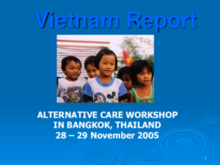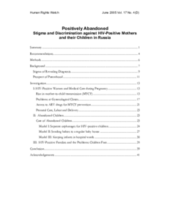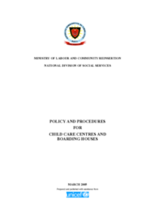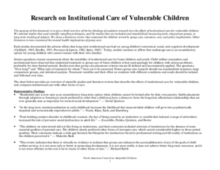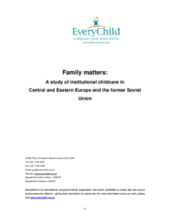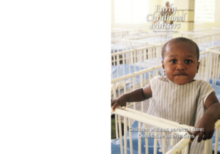Displaying 1431 - 1440 of 1510
This presentation was given at the Alternative Care Workshop in Bangkok in November 2005.
This report provides baseline information on conditions in orphanages in the Russian Federation. This information addresses three major limitations in the literature on the development of children residing in substandard orphanages and those adopted from such environments.
Russia is home to one of the fastest-growing AIDS epidemics in the world, but the government has done little to address the problem.
This document is a guideline to facilitate good policy and practice within institutional care settings for children in Timor. It addresses regulations, registration, standards of care, placement and monitoring.
Reports on the financial costs of residential care for children in the Republic of Moldova. Highlights significant financial inefficiencies and advocates for closure of residential institutions.
A brief literature review of the key findings of academic research into the effects of institutional care for vulnerable children. Contains information on the negative effects of institutional care.
A report discussing the advent and perpetuation of institutional care in Central and Eastern Europe and the Former Soviet Union prior to and since the end of the communist regime. It also provides examples of family-based care as models of care to substitute institutional care and offers recommendations to donors, NGOs and governments for child care reform based on their experience in CEE and FSU.
A set of standards for residential settings, including the young person’s welcome into care, the quality of care they should receive, contact arrangements, and listening and responding to the views of young people.
This is an issue of the Early Childhood Matters journal. Topics include community based care, out of home care, institutional care, mothers in prison, child-headed households, and other issues from around the world
This report reviews the faltering progress made in childcare reform across Central and Eastern Europe and the former Soviet Union over the 15 years since the ‘orphanages’ of Romania were revealed to the world.

